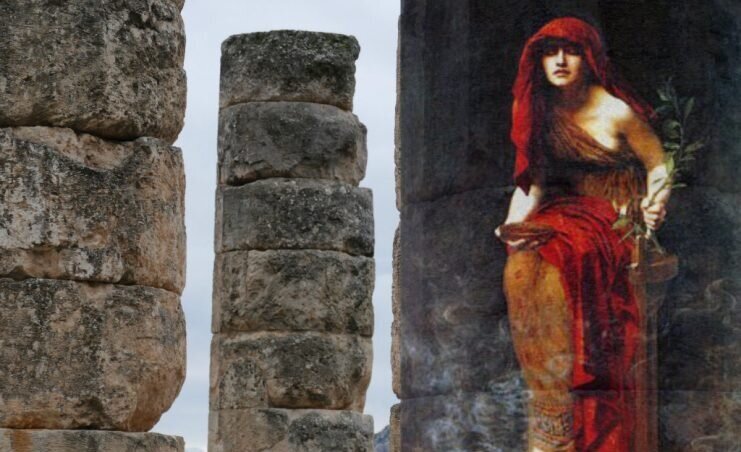An oracle of Pythia was the most important prediction for the outcome of important events. It was unthinkable for most leaders of the time not to consult her.
Whether they were kings or generals. The oracles were delivered laconically and were difficult for some to understand, but they managed to be confirmed. Pythia even managed to predict her own end.
These are the most famous oracles:
Julian the Apostate was a pagan, a heathen, and an opponent of Christianity. The last oracle of Pythia is connected with him. He sought to restore the customs of the ancient Greeks, and especially the privileges of the oracle so that he might obtain oracles for the questions that concerned him. Thus, with the envoy of his trusted physician Oreivasios, he wanted to know from Pythia whether he had done right in reviving the splendor of the oracle.
"Tell the king: the rich courts are torn down, it is lost, Phoebus has no more hut, he has no prophecy, he has not a laurel or a fountain that talks and the marshy water is mute"
Pythia thus announced not only her own end, but the demise of all the old gods. Julian, in less than 20 months, died, in a war with the Persians in 363 AD. He was struck in the back by a soldier's spear.
Philip II of Macedonia
Bust of Philip II of Macedon from the Hellenistic period
Once Philip II had consolidated his position in the kingdom of Macedonia, he sought to usurp the Delphic oracle. In the Third Holy War, the Phocians usurped the Oracle, so Philip sought to restore legitimacy by leading his forces against the Phocians. He came with his hoplites to the Oracle of Delphi as a liberator, with the goal of gaining control of the Delphic Amphitheater.
"Fight with silver spears, and you will win all the battles," said the oracle, and Philip correctly understood that Pythia was not referring to the spears of his soldiers, but to the silver coins, he had just minted and so, challenging him to gain financial rather than military power. Thus the silver and gold mines of the neighboring kingdoms, like those of the Thasians, came into his sight, and he soon acquired them.
King Grinos and the foundation of Thera in North Africa
The colony of Thera in North Africa was one of the most important commercial and religious centers of the Greek world. When the king of Thira, Grinos, appealed to the Oracle of Delphi in 639 B.C. because of the afflictions of his island, Apollo invited him to colonize Libya. But the king declined, being too old for such adventures, and therefore neglected the oracle. The divine wrath soon fell on Thera and plagued the island with a seven-year drought. When Grinos returned to Delphi, Pythia reminded him of the ancient oracle, and thus persuaded Grinos to commit himself both to Libya and to its conquest.
The death of Homer
According to the traveler Pausanias, Homer visited the oracle at Delphi to ask Pythia who his parents were and where he came from. Pythia responded with the following oracle:
"Your mother's home is the island of Ios, which will receive you when you die, but beware the riddle of little children."
Roman bust of Homer from the second century AD, portrayed with traditional iconography, based on a Greek original dating to the Hellenistic period
The poet, however, disobeyed the oracle and journeyed to Ios. There he saw some little children fishing on the shore. He asked them what they had caught, and the children replied: "What we catch we leave, what we do not catch we bring back". The children spoke of lice. Those who found them were killed, but those who did not were carried to their heads. Homer could not find the answer, but he remembered the warning of Pythia. He was horrified and moved on quickly. The road was muddy and the poet in his haste slipped and fell. He hit his head and died almost instantly.
According to another version, Homer died of his grief at not having solved the mystery of the oracle, while a third version says that he was already seriously ill and went to Ios because he knew he was going to die. Of course, the death of the great poet is not based on historical studies, but on myths and traditions spread by word of mouth. Pausanias simply recorded a folk tale.
Source: mixanitouxronou.gr - Wikipedia











